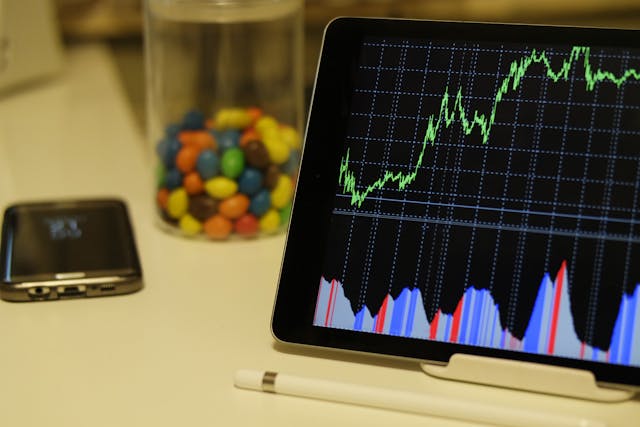Proprietary trading, often known as prop trading, is a complex financial activity in which a financial institution, such as a bank or trading house, spends its capital in the markets to create profits. Unlike traditional trading done on the client’s behalf, proprietary trading uses company capital to seize market prospects. Learning the fundamental ideas and the surroundings in which proprietary trading flourishes starts the road into this field.
How Proprietary Trading Works
Businesses use their resources to trade a variety of financial products, such as stocks, bonds, commodities, currencies, and derivatives, in a practice known as proprietary trading. Unlike client-driven trading, in which commissions or fees are paid for trading executions, the gains in proprietary trading originate straight from effective market speculation.
Advanced technology including algorithmic systems that examine market trends and execute precise trades is mostly relied upon in proprietary trading. These algorithms are made to find even small pricing differences, therefore enabling companies to profit from speculative or arbitrage techniques. Moreover, proprietary trading consists of leveraging, in which companies borrow extra money to improve their market presence.
Skills Needed for Proprietary Trading
Success in proprietary trading requires a unique set of skills that go beyond basic market knowledge. Traders must have strong analytical skills in order to identify profitable patterns and grasp complex statistics. The ability to remain calm under pressure is also important, as the fast-paced environment of trading can be mentally exhausting. Decision-making is critical for traders since they typically have limited time to assess market conditions and execute trades.
Discipline is key for inexperienced traders. Proprietary trading requires strict regulations and processes, as breaching them can result in significant losses. Another critical skill is risk management, which includes determining the appropriate money to allocate to each transaction and establishing stop-loss thresholds.
Tools and Technology in Proprietary Trading
Modern technologies improving trade execution and decision-making are what propels proprietary trading. From data analytics tools to advanced trading platforms, these instruments are essential in spotting and seizing market prospects. Prop trading companies frequently use artificial intelligence and machine learning-driven algorithmic trading systems to automate procedures and increase productivity.
Another vital component of proprietary trading is access to real-time market data. Data feeds and advanced charting tools give traders the tools they need to detect trends, monitor price fluctuations, and project future market behavior. Additionally essential is risk management software, which lets companies evaluate exposure and minimize possible losses.
The Role of Risk Management
Risk management is essential in proprietary trading since it determines a company’s long-term viability and profitability. Unlike conventional trading, in which risks are sometimes shared among customers, proprietary trading exposes the firm’s capital directly to changes in the market. Adopting strong risk management strategies is, therefore, essential to protect investments.
Market circumstances are also closely monitored by traders since external events such as political developments, economic events, and legislative changes can all have an impact on the market. Stress testing is another important aspect of risk management since it allows businesses to examine how their plans will perform under adverse conditions. Learning about risk management will assist new traders in navigating the complexities of proprietary trading.
How Beginners Can Start with Proprietary Trading
For those new to proprietary trading, it all begins with education and practice. It is critical to have a thorough understanding of financial markets, trading instruments, and procedures. Beginning with online training, reading books on trading psychology, and analyzing historical market data, ambitious traders can. Consulting top-rated prop trading firms provides newcomers with practical experience in a risk-free environment through training classes and simulated trading platforms.
For newcomers, establishing a track record is equally critical. On a demo account, consistent performance can increase your chances of being approved by a proprietary trading firm. Networking with other traders and seeking mentorship from experienced experts can also help to accelerate the learning process.
Conclusion
Proprietary trading is an intriguing and potentially profitable possibility for those with the proper skills, effort, and persistence. Prop trading companies seek to maximize profits by utilizing cutting-edge technology, sophisticated processes, and stringent risk management measures. Understanding the mechanics of proprietary trading is the first step in studying this intriguing profession for beginners. Aspiring traders can overcome the challenges of proprietary trading and attain its full potential by remaining motivated and constantly learning.

